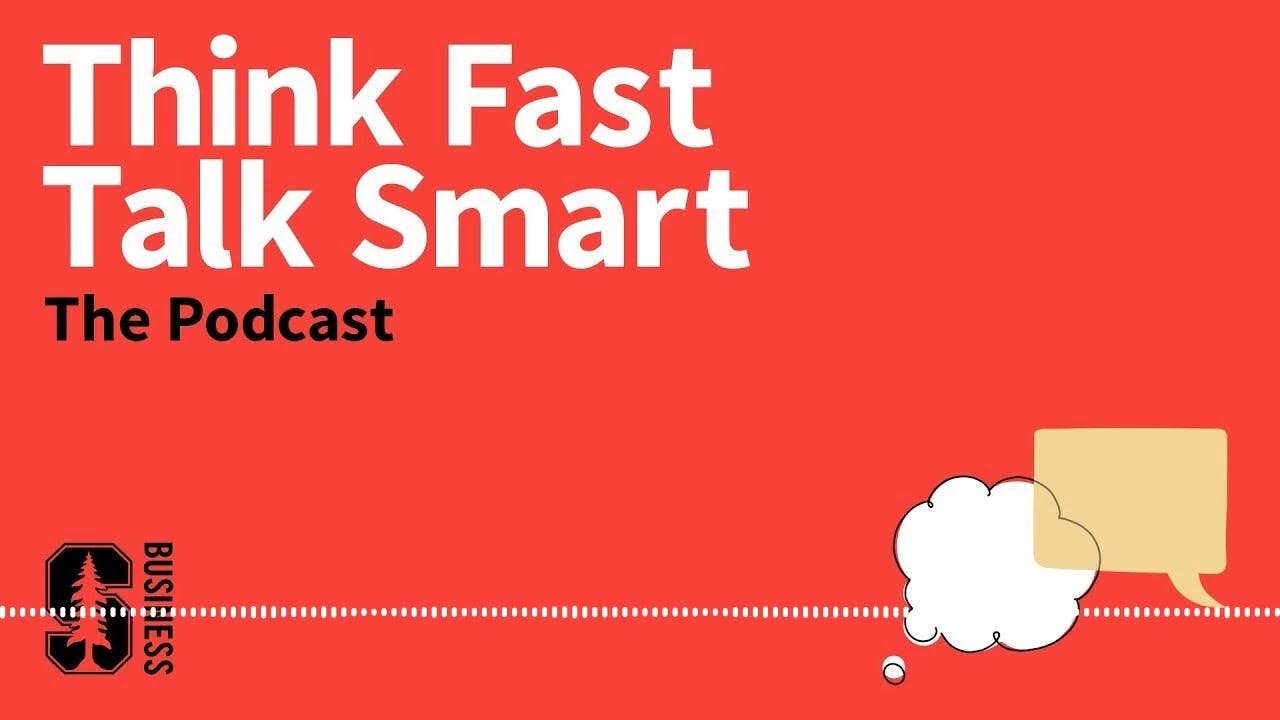Best of: How We Set and Achieve Goals | Think Fast, Talk Smart: Communication Techniques
21 Nov 2023 (2 years ago)

Introduction
- The host, Matt Abrahams, speaks with Szu-chi Huang, an associate professor of marketing at Stanford GSB.
- Szu-chi's research focuses on motivation, science, and shared goal pursuit.
Motivation and Needs
- Szu-chi became intrigued by motivation while working at an advertising agency, where she realized they didn't have many answers on how to motivate customers.
- Her research focuses on understanding how motivation changes as people progress from one stage to another and how collaboration and competition affect goal pursuit.
- Szu-chi expanded her research to look at other types of motivation, such as motivating donors and the impact of new technologies on motivation.
- Key takeaway: It is important to understand the various needs people have and tailor motivation strategies accordingly.
- Emotionality plays a significant role in motivation, as positive emotions arise when needs are satisfied, while negative emotions arise when needs are not met.
Designing Motivating Competitions
- Competition increases motivation and the value of attaining a goal.
- Winning and losing can both be motivating, but they have different effects at different phases of a competition.
- At the beginning of a competition, winning signals and being ahead can be motivating, as it gives a sense of probability of success.
- As the competition progresses, being slightly behind can be more motivating, as it provides a clear benchmark to achieve.
- Tailoring feedback and benchmarks based on individuals' needs and progress is crucial for sustaining motivation in competitions.
Information Avoidance and Motivation
- People often have access to a lot of social information through social media platforms.
- Initially, people are motivated by social benchmarks and success stories.
- As they get closer to reaching their goals, they may become demotivated and avoid information about how well others are doing.
- Information avoidance can lead to decreased motivation as it removes the benchmark that motivates individuals.
- Comparing oneself to past performance can be a motivating factor for individuals who are already winning or ahead.
Viewing Goal Success as a Journey
- Instead of viewing goal success as a destination, it is important to see it as a journey.
- Reflecting on what has been done right during the process and who has been instrumental in the journey can help sustain motivation.
- Tailoring communication and feedback based on individuals' progress and needs is crucial for maintaining motivation.
Communication Advice
- Know your audience: Understand why they are there and tailor your content to connect with them personally.
Admirable Communicator
- Szu-chi admires Michelle Obama for her clarity, confidence, elegance, and empathy in her speeches.
Successful Communication Recipe
- Know your audience: Understand why they are there to listen.
- Tailor your content to connect with your audience.
- Make it personal: Connect the content to yourself to create a unique learning experience.